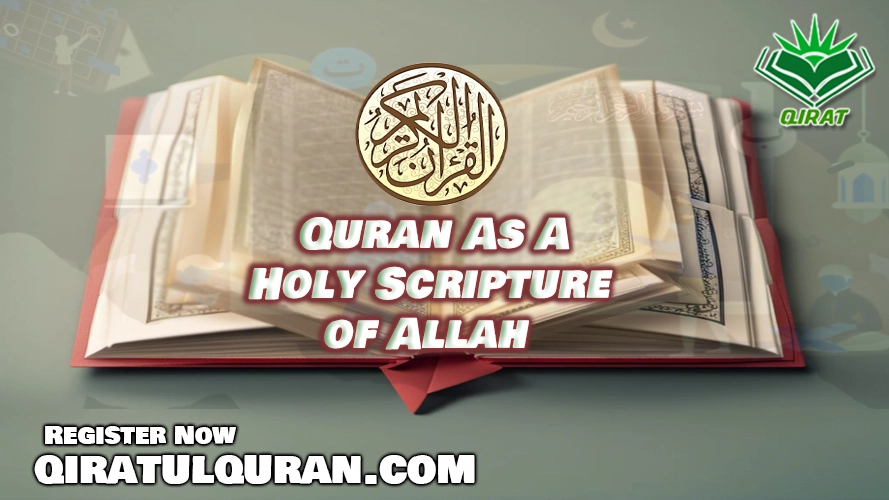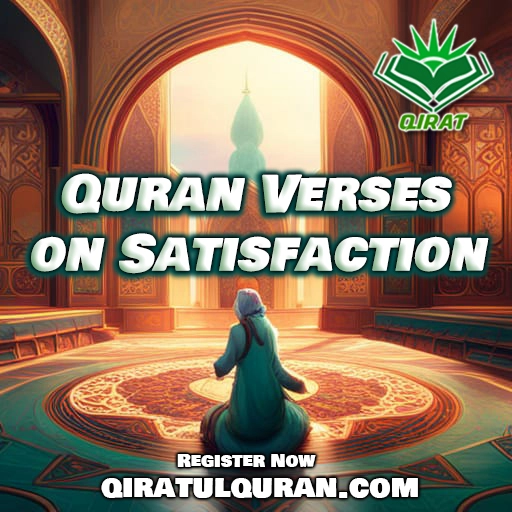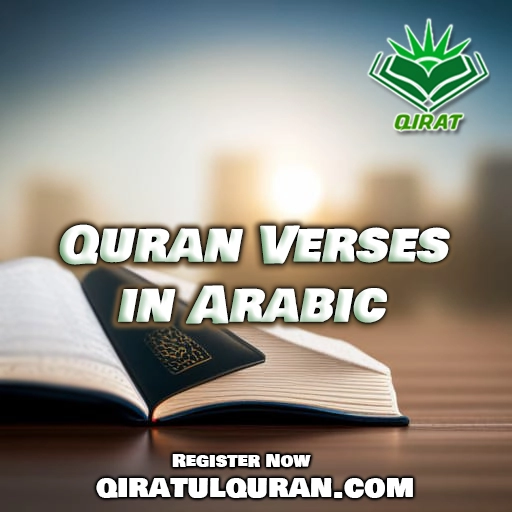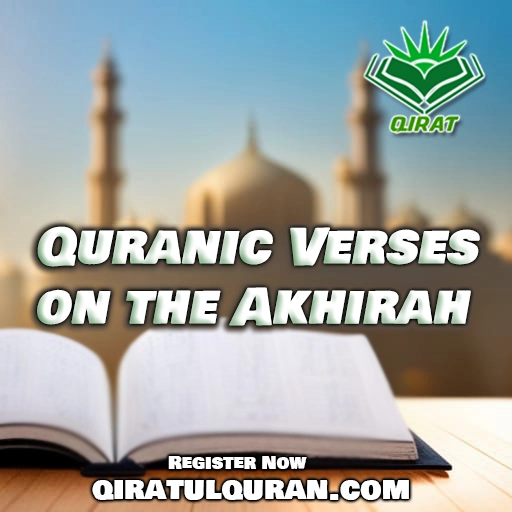Quran As A Holy Scripture of Allah: The Quran is the holy book of Islam and is believed by Muslims to be the direct word of God (Allah) as revealed to the Prophet Muhammad over a period of 23 years. It is composed of 114 chapters (surahs) and over 6,200 verses (ayat). The Quran provides guidance for all aspects of a Muslim’s life, from matters of faith to law and social issues. Qiratul Quran will guide you on How Quran as a Holy Scripture of Allah.

The Revelation of the Quran
Muslims believe that the Quran as a Holy Scripture of Allah was revealed by the angel Gabriel to Prophet Muhammad beginning in 610 CE while he was meditating in the cave of Hira near Mecca. The first verses revealed were the beginning of Surah Al-Alaq. The revelations continued until shortly before the Prophet’s death in 632 CE.
The Prophet memorized each verse and shared it with his Companions, who also memorized it and wrote it down on whatever materials were available at the time such as parchment, stone tablets, palm leaves, shoulder blades, and rib bones. The verses were later compiled into a single book, the Quran, under the third caliph Uthman, who appointed a committee to verify the authenticity of every verse by comparing them to memorized verses and textual sources.
The Quran as the Word of Allah
Muslims consider the Quran to be the literal words of God as revealed to Prophet Muhammad. It is not considered the Prophet’s own words or composition. The Quran describes itself as a book of guidance for all humanity and repeatedly calls on readers to reflect, ponder, and study its verses.
Muslims believe the Quran is a miracle in terms of both form and content. In terms of form, its language is considered extraordinarily beautiful, eloquent, and poetic, even though the Prophet was not known to have composed any poetry before the revelations. The Quran also contains a linguistic miracle in that its verses rhyme and have a musical quality that is lost in translation.
In terms of content, the Quran speaks about divine truths, metaphysics, stories of previous prophets, historical accounts, and prophesies. Muslims believe no human could have produced such an insightful, consistent, and spiritually uplifting text. The Quran also challenges readers to find errors or contradictions, which Muslims believe is impossible.
Major Themes of the Quran
Some of the major themes of the Quran include:
– The oneness and supremacy of God (Tawheed): The most essential concept in Islam is the absolute unity and oneness of God. The Quran repeatedly emphasizes that God is the almighty, all-knowing, all-merciful creator and sustainer of the universe.
– Prophethood: Muslims must accept all true prophets of God mentioned in the Quran, including Adam, Noah, Abraham, Moses, Jesus, and Muhammad. God sent messengers and prophets to guide humankind.
– Justice and moral responsibility: The Quran teaches establishing justice and condemning oppression even against one’s own self. Life is a moral test and everyone is accountable for their own actions in the Day of Judgment.
– AFTERLIFE and the existence of heaven and hell: The Day of Resurrection and life after death is a key aspect of Islamic teachings. The righteous are rewarded with Paradise while evil-doers are punished in Hell.
Structure and Language of the Quran
The Quran is written in classical Arabic, the language of revelation. It has 114 chapters of varying lengths. The chapters are arranged roughly from longest to shortest, with the exception of the first chapter, the Fatiha.
Each chapter is composed of verses, called ayat in Arabic. There are over 6,200 verses in total. The verses have a lyrical, rhythmic quality that is lost in translation. The endings of verses rhyme and can be set to music. Both the Arabic text and the sound of the Quran recitation are considered integral to understanding and experiencing the beauty of the Quran.
Major themes are interwoven between chapters and verses. Stories of prophets and parables are often told in fragmented ways, repeated over various chapters. This unique nonlinear structure is said to encourage deeper reflection on the verses and their interconnected meanings.
The Quranic Arabic also utilizes complex literary devices such as metaphors, similes, rhetorical questions, and mystical subtleties. Muslims are continuously discovering new layers of meaning with repeated study and reflection of the verses.
Role of the Quran in a Muslim’s Life
The Quran provides moral and spiritual guidance in all aspects of life for Muslims. Its verses offer intimate, conversational advice from God on avoiding sin, performing righteous deeds, and maintaining a personal relationship with the Divine. The Quran also encourages continual self-reflection and closeness to God through prayer and supplication.
In terms of Islamic law, the Quran lays out basic obligations such as the Five Pillars of Islam: the declaration of faith, prayer, charity, fasting, and pilgrimage. The specifics of these duties were demonstrated by Prophet Muhammad, and form the Sunnah, which along with the Quran is a primary source of Islamic law.
Muslims turn to the Quran for solace and inspiration during difficult times. Memorizing and reciting verses from the Quran is also a common devotional practice. Many Muslims make it a habit to recite one to several chapters a day, both to reflect on their meanings and bask in the beauty and euphony of the recitation.
Summary of the Quran As a Holy Scripture of Allah
The Quran holds an exalted position in the lives of Muslims as the sacred carrier of God’s final message for all of humanity at all times. Its verses are repeatedly recited, reflected upon, and consulted for guidance – cementing it as a holy scripture like no other.
Qiratul Quran Branded Courses
Related Courses
Our Best Faculty
Book Your Class Now for your bright Islamic future. QiratulQuran.Com is more prominent because of Qualified Alazhari Ph.D. DR. teachers. We don’t have any teachers with less than a Ph.D. education. Avail of this facility now. Enroll Today.





